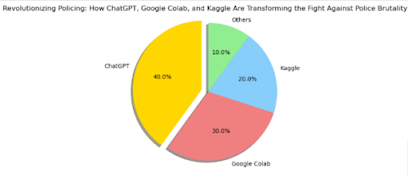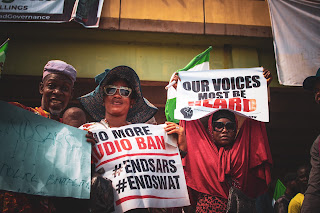Innocent Black Man Held at Gunpoint for 5 MINUTES for Legally Filming in Public
 Filming the police is entirely legal, in every state.
Filming the police is entirely legal, in every state.All too often, we will see police officers overstep their authority and arrest, attack, and assault innocent people for the constitutionally protected act of documenting their behavior in public.
As the following case out of Clinton County, Indiana illustrates, cops will even pull their guns on people for exercising their First Amendment right to film in public.
In the land of the free, there are ostensible checks and balances which are in place to prevent corrupt and power drunk government officials from overstepping their authority and depriving people of their rights.
As TFTP has reported for years, despite the fact that police swear an oath to uphold this constitution, they are all too often the ones who ignore it.
In an exclusive interview with the Free Thought Project, activist and First Amendment auditor, Floyd Wallace tells us that this week, he went to Clinton County and was walking around filming in public.
He had committed no crime but being black and filming apparently set off a resident who called police to report him - for filming.
Clinton County Sheriff's deputy B. Knapp shows up to the call and is apparently afraid of his own shadow.
Within a few seconds of arriving to Wallace's location, he pulls his gun out and points it at the innocent man.
"I was just walking around filming in public when they pulled guns on me," Wallace tells the Free Thought Project.
The cop demanded Wallace "Drop his phone" and stop filming but this would have ended the documentation of this incident.
Showing just how scared these deputies are of a black man filming is the fact that deputy Knapp called for backup and another deputy arrived and pointed an AR-15 at Wallace.
He was then handcuffed and interrogated - for filming.
Wallace was then handcuffed and detained as a half dozen other cops show up to investigate a black man filming.
After Wallace refused to have his rights trampled, the cops were forced to leave as they had nothing on which to detain him.
He had asserted his rights and won - luckily without being shot by these gun-happy officers.
At the end of the video, Wallace confronts the people who likely reported him.
They yell at him and claim that Wallace was walking on the side of a building looking in windows - a claim he denies and has the video to prove it - yet not illegal at all.
Even if Wallace was attempting to provoke a response by filming in public, his actions were not criminal and therefore his subsequent treatment of being held at gunpoint for five minutes, unsubstantiated.
As TFTP has reported, it has been clearly established that all Americans have the right to record the police.
For an officer of the law to remain willingly ignorant of this precedent is at best, dereliction of duty, and at worst, unlawful deprivation of rights.
Taking photographs and video of things that are plainly visible in public spaces is a constitutional right-and that includes transportation facilities, the outside of federal buildings, and police and other government officials carrying out their duties.
Law enforcement officers have been known to ask people to stop taking photographs of public places.
Other people have ended up in FBI databases for taking innocuous photographs of public places.
The right of citizens to record the police is a critical check and balance.
It is no accident that some of the most high-profile cases of police misconduct have involved video and audio records.
When police refuse to have their public service documented and this refusal morphs into kidnapping and assault, something has gone seriously wrong.



Comments
Post a Comment